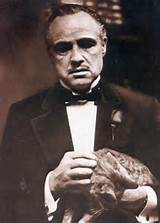Tags
Anglo-Saxons, Arthur, Ceredig, Coroticus, Gawain, Gwalchmai, King Arthur, kingship, Mark, Owain, Sub-Roman Britain, Urien, Vortigern, Yvain
 The comparison of one of the most famous, upright, romantic ideals with a cornerstone of crime looks at first sight like a cry for attention, or as one of those challenges I’ve occasionally given myself just to see what kind of a ridiculous explanation I can come up with on the spot. It’s not either, though. The comparison is a valid one, a comparison I have used in teaching and have kept in mind in my writing.
The comparison of one of the most famous, upright, romantic ideals with a cornerstone of crime looks at first sight like a cry for attention, or as one of those challenges I’ve occasionally given myself just to see what kind of a ridiculous explanation I can come up with on the spot. It’s not either, though. The comparison is a valid one, a comparison I have used in teaching and have kept in mind in my writing.
When I envision the development of the first British war-bands (and I have to envision as there are no records of it) I imagine the Germanic clans raiding and slowly spreading their authority over British villages. All over Britain I think of charismatic young Britons eventually gathering together their own groups of trouble-makers to stop them. The invaders stopped, these leaders realize that they are more powerful than he could have imagined. His followers likewise enjoy their new importance and neither of them want to lose it. So they wouldn’t.
But young men didn’t lead villages, by common custom and Roman law elders did. That meant they had no ready way of becoming a part of the government, which in turn meant no means of feeding and supplying themselves. So, instead of working with the system in place they created a government over it. That would have been easy enough. With war veterans carrying the prestige of success and already having the most able-bodied and aggressive people of the area there was no one to stop them. The leader could also make the legitimate point that “The raiders might come back.” Then they demanded what they thought they needed to live on.
 When I consider the origins of tribute among the British villages of the era, I think of it more as protection money. On the surface, it was money spent to protect the villages from a renewal of Germanic aggression. Beneath that, though, was the unspoken threat that their own king was keeping his men in check through the tribute. Without it, they had no reason not to ravage through their own villages.
When I consider the origins of tribute among the British villages of the era, I think of it more as protection money. On the surface, it was money spent to protect the villages from a renewal of Germanic aggression. Beneath that, though, was the unspoken threat that their own king was keeping his men in check through the tribute. Without it, they had no reason not to ravage through their own villages.
Thoughts of Sir Thomas Mallory are likely floating through your head about now, of a warm and fuzzy kingdom where courtesy and honor reign over everything. But such high-minded concepts can only be afforded in a place where there is stability and maturity. The fifth and sixth centuries were anything but that. The Roman structure had been swept away and native customs were struggling to emerge again. Political institutions were gone and social conventions long forgotten. The Arthur we see in Trioedd Ynys Prydein and Culhwch ac Olwen was more cunning than his peers, not more honorable. He was a better fighter and tactician, not necessarily a better ruler. Arthur might have been courteous, but never with the people he depended on for food and armaments or the other chieftains of Britain. He couldn’t afford to be. Living in a place where the oldest people still remembered existing without a king he could not have hoped to create and enforce a false lineage. All he had was the intimidation of his person and his warriors. If villages didn’t believe that he would punish them for not paying tribute they wouldn’t pay. If another chieftain thought he could beat Arthur one on one, he attacked. The only way to survive was by being more intelligent, more cunning, and more brutal to your enemies and your villages.
The mafia has another aspect, too, and one that makes it appealing. Membership in a family can mean a great deal of money and power. Those rewards, though, come at a price. Most people in that line of work don’t live to old age. In the Arthurian era, the maximum life-span for someone not in the church was fifty-five. A warrior who made it that long would have been extremely lucky. A warrior who lived to forty would have been exceptional.

Early thuggery for a cause. The early years of organized crime were “altruistic” too. They really DID protect their own and in some places, still do. Which goes to my fundamental belief that nothing is as simple as people want it to be. No one is all good or all bad … or at least no one even remotely normal. Real people are always a mixed bag.
Even heroes and villains are getting that way. Nice to see fiction reflecting reality.
Sometimes I miss those shiny, perfect heroes and heroines. But mostly, I like the rougher edged modern portrayals.
You want a real hero, the kings and warriors are the wrong people. If you know you won’t live long, you live hard and don’t worry about morality. Real heroes are teachers and givers.
Yes!!!